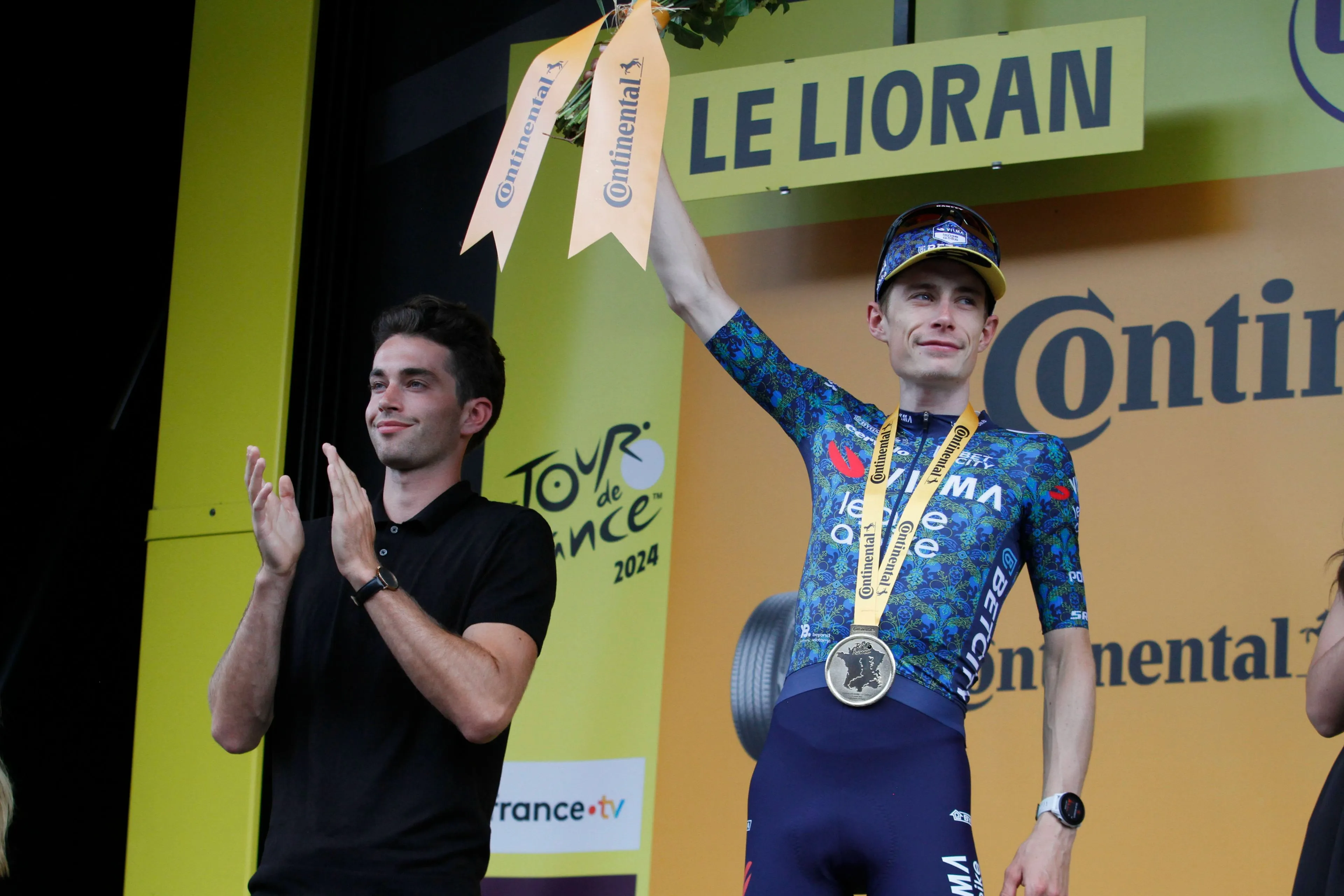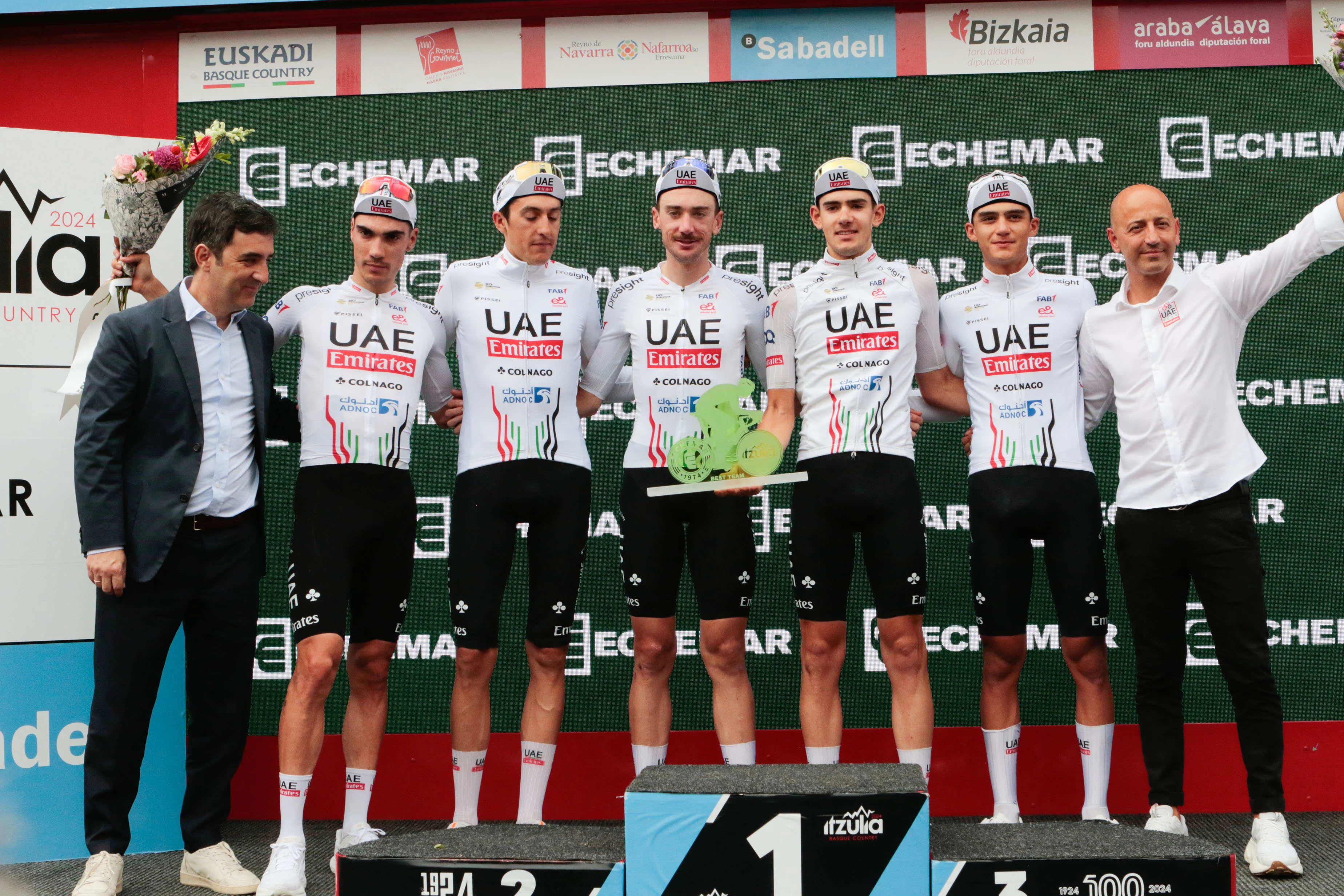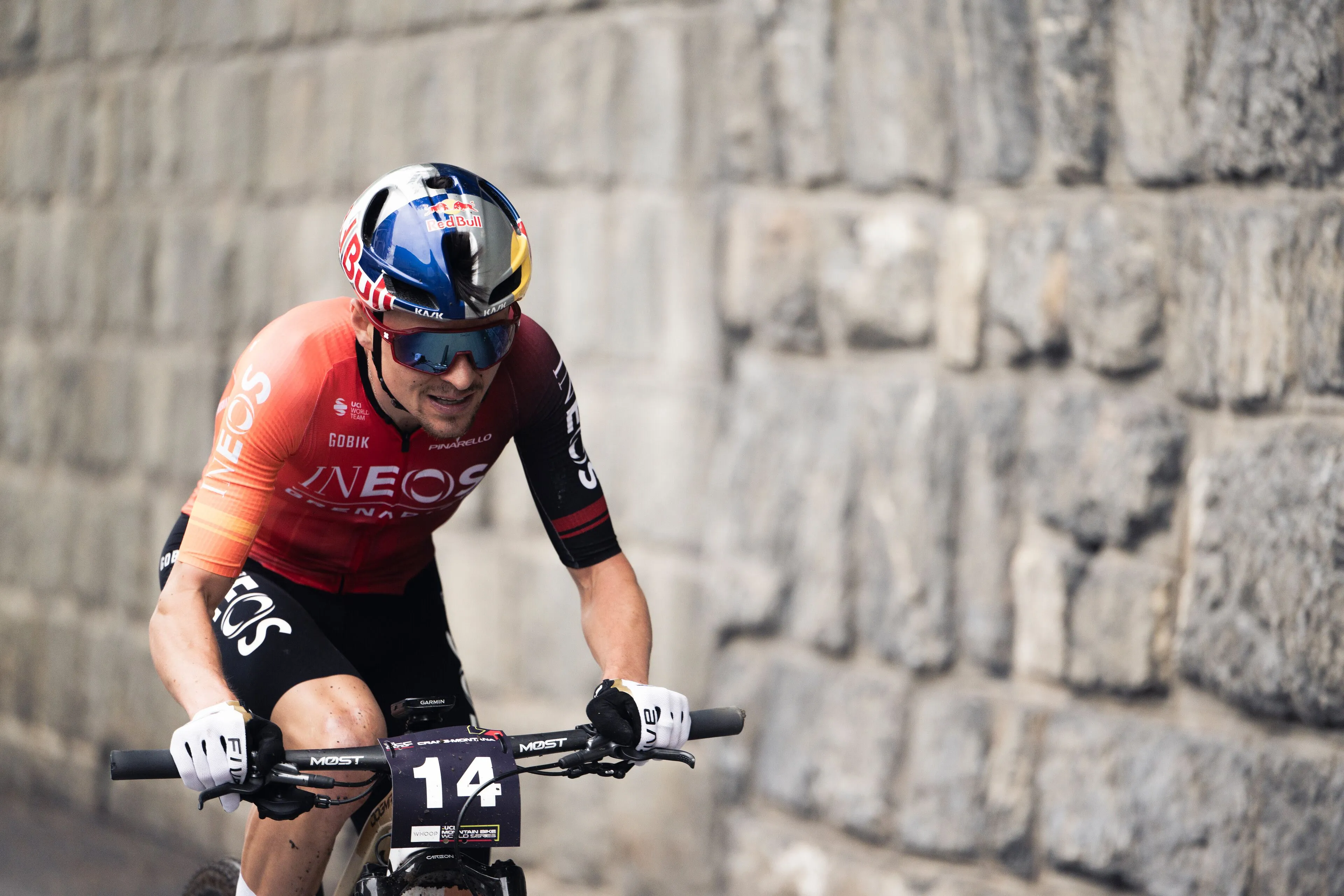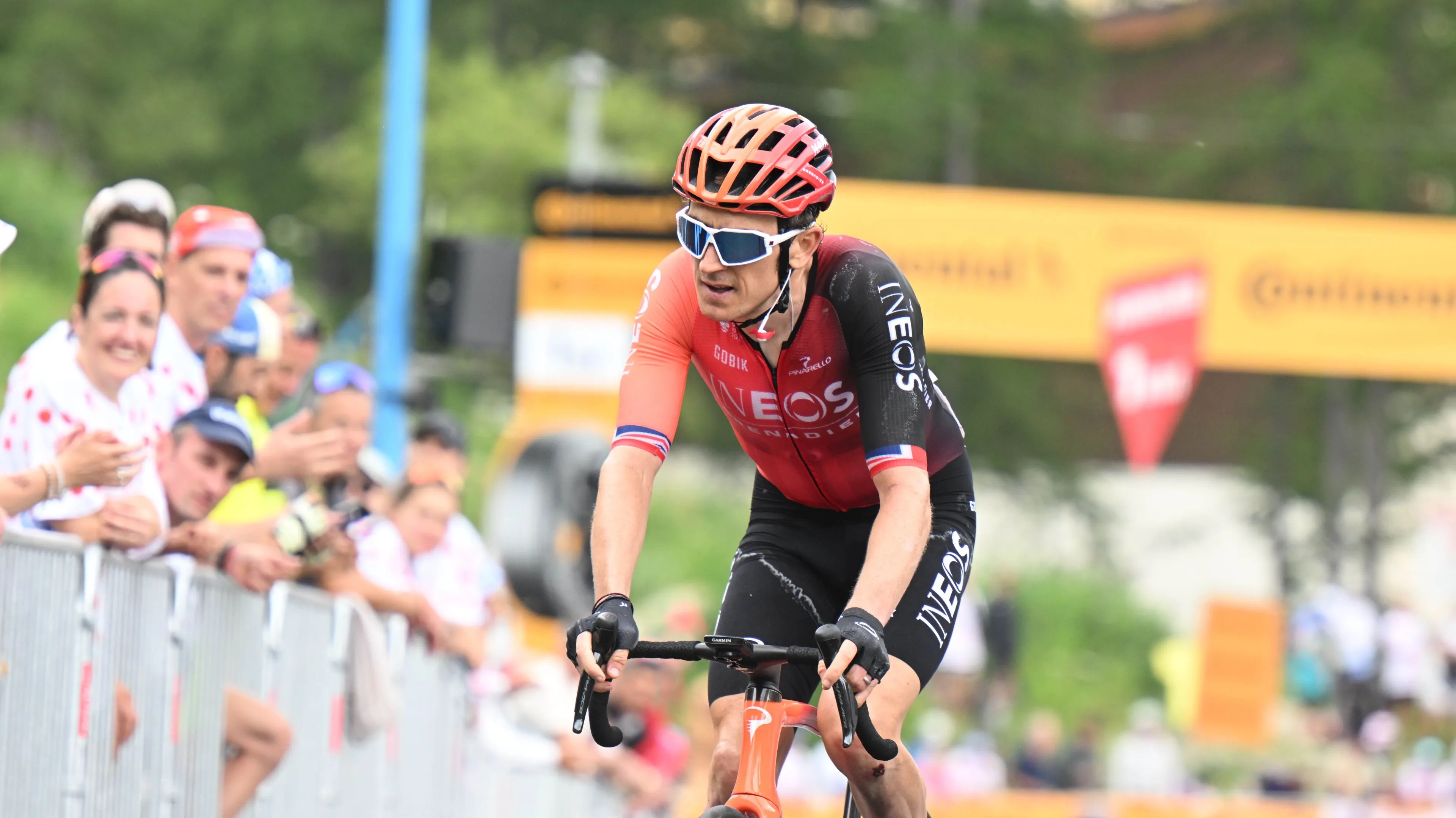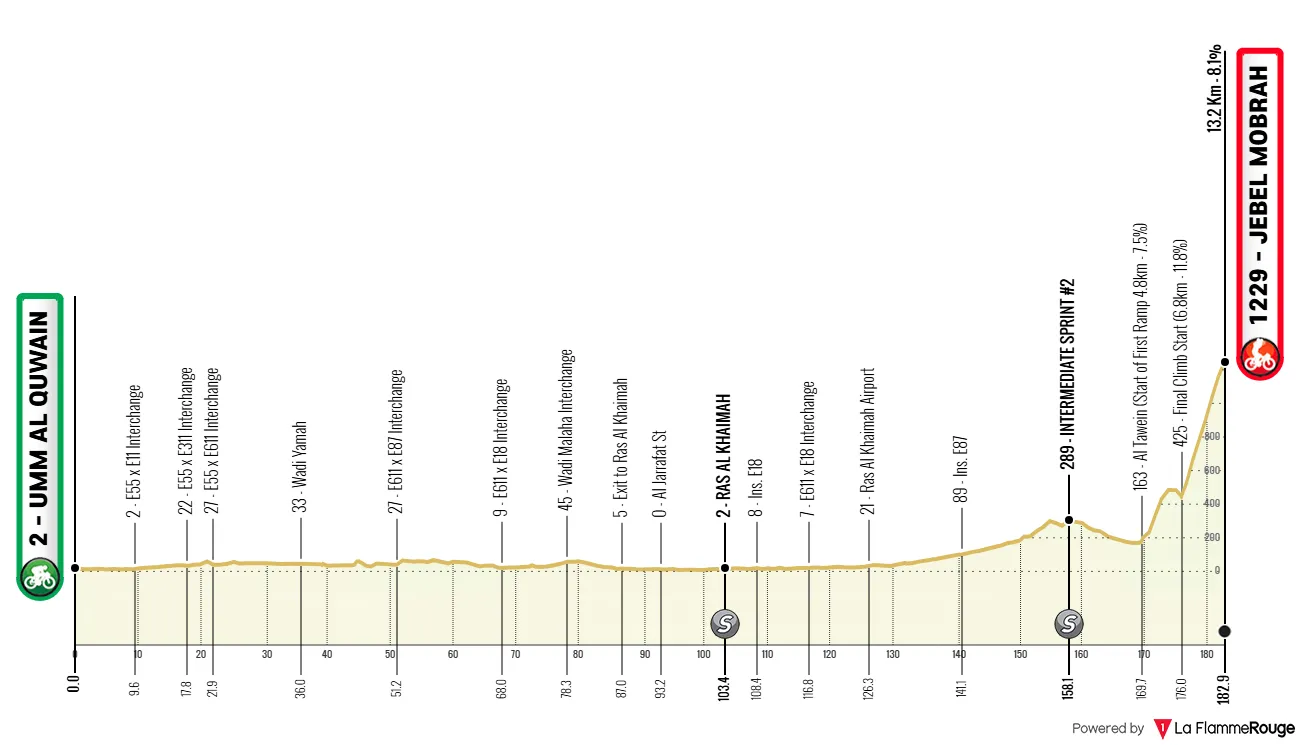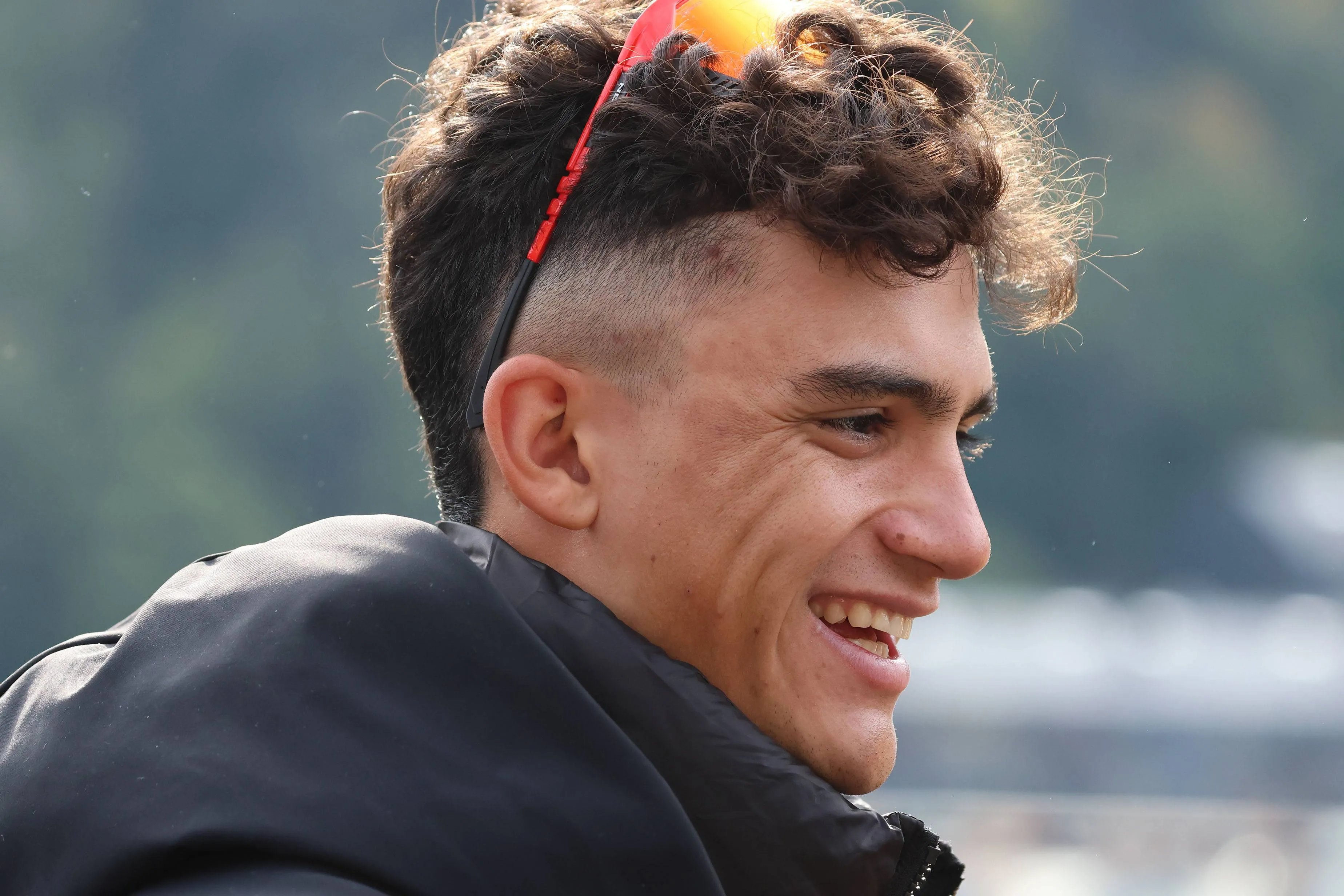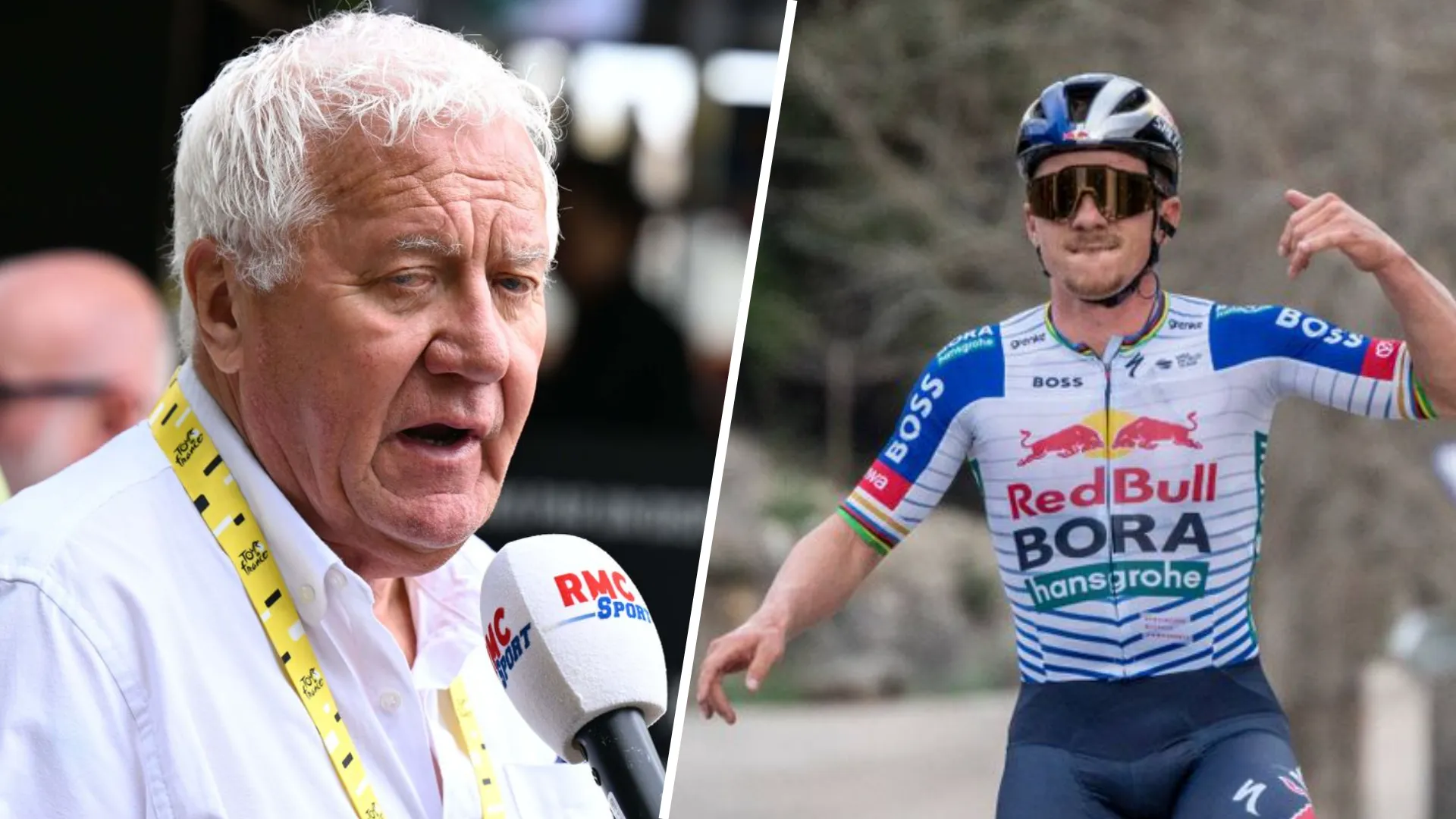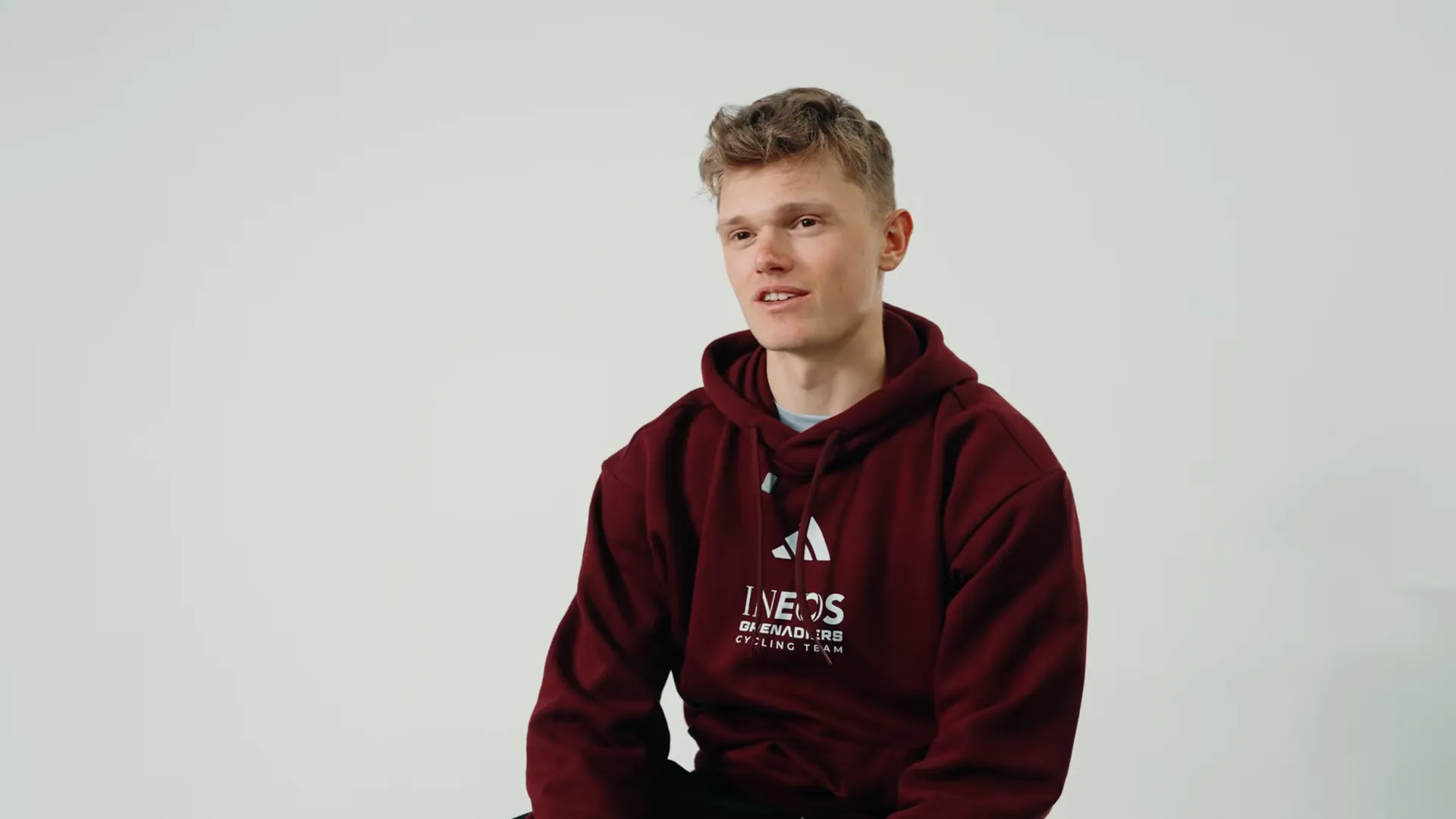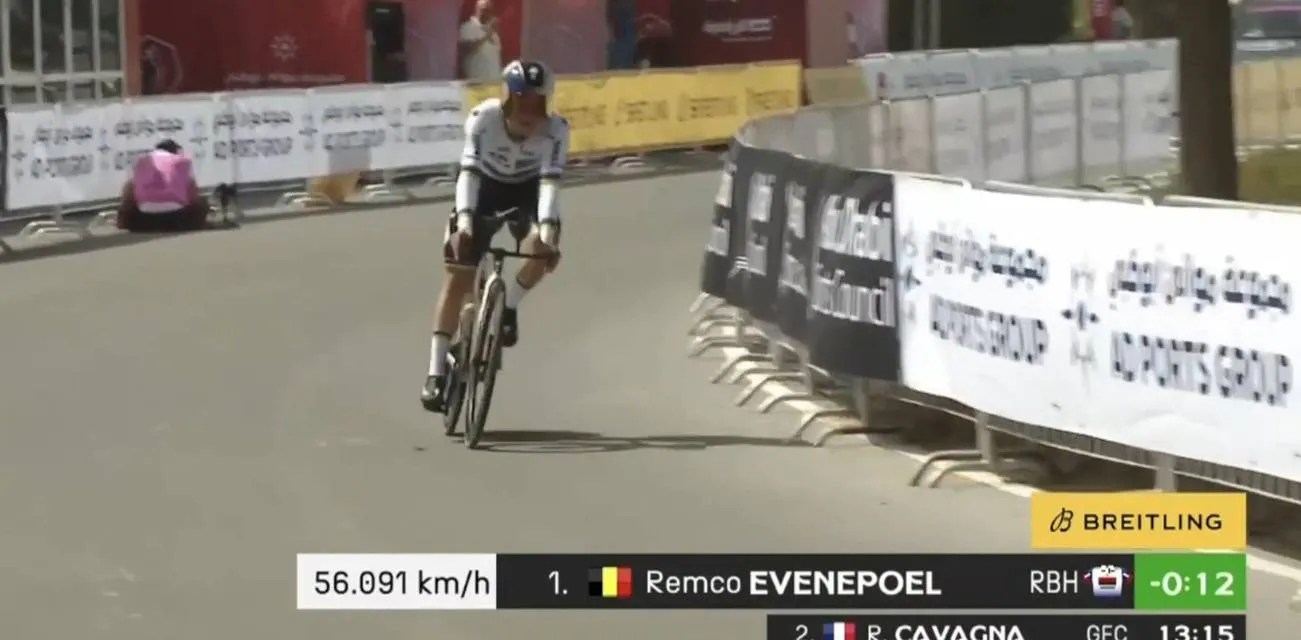ANALYSIS: Red Bull - Bora - hansgrohe say Primoz Roglic is not too old to win the Tour de France, but what do the history books say?
CyclingSaturday, 30 November 2024 at 15:30
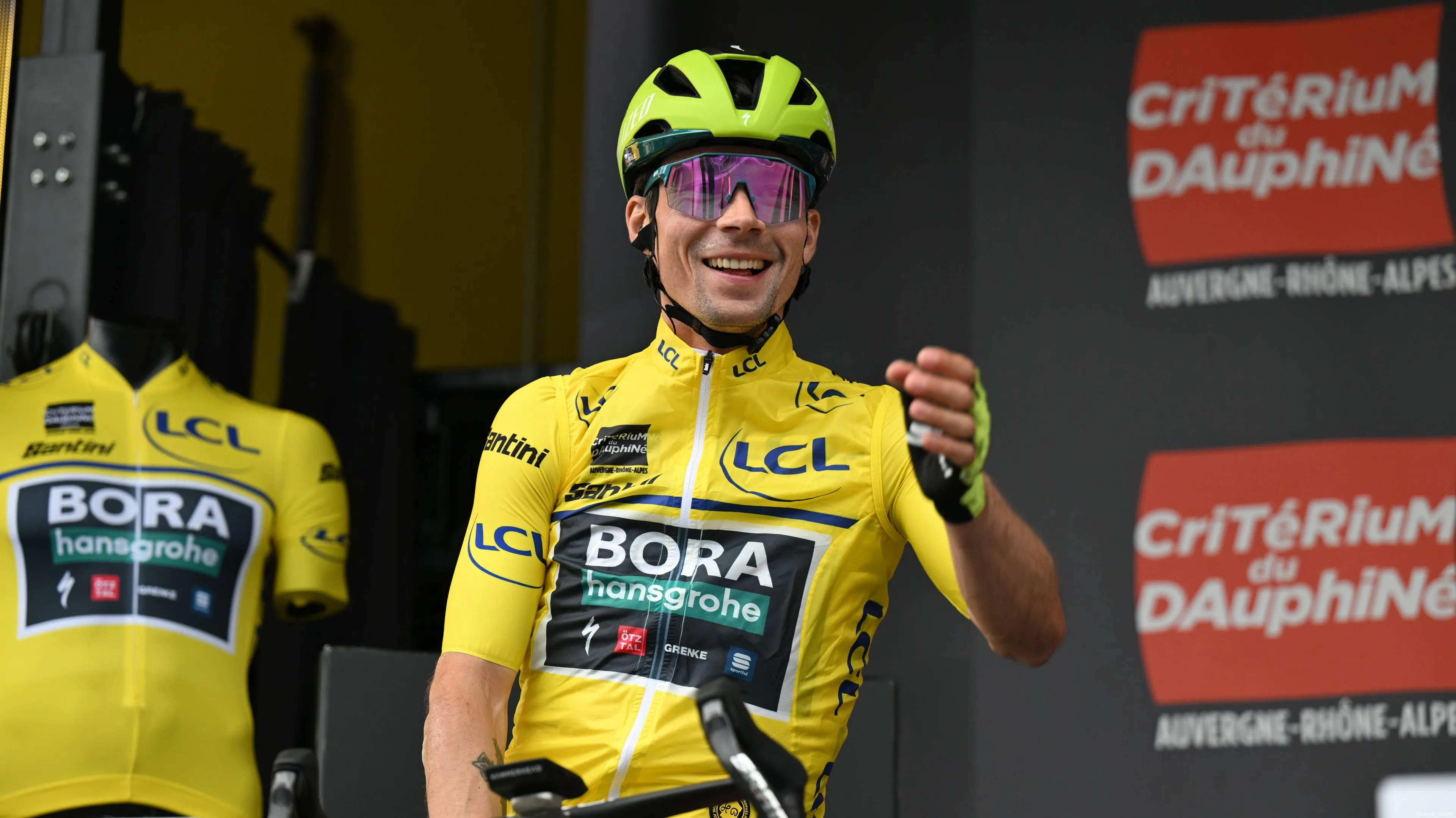
There’s no doubt about it, Primoz Roglic’s debut season with
Red Bull – Bora – hansgrohe was a success. In his first season since leaving
Jumbo Visma, the Slovenian won the Criterium du Dauphine, and more importantly the
Vuelta a Espana which he won for the fourth time in his incredible career. For
99% of riders in the peloton, winning those two races in the same year would be
the greatest season of their career. Of course, Tadej Pogacar completed the
triple crown in 2024, which rightfully dominated the headlines as one of the
greatest seasons ever.
In reality, Roglic had a superb year. But does it not feel
as if we’ve seen this story before? Roglic enters the Tour de France in great
form, Roglic crashes at the Tour de France, Roglic saves his season by winning
the Vuelta. Yep, it does sound familiar, and that’s not take anything away from
Roglic’s year, but time really is ticking on if he ever wants to win the Tour
de France, the one thing missing from his palmares.
Read also
Red Bull - Bora – hansgrohe head of performance Dan Lorange
recently told Velo that at 35, he still thinks that Primoz Roglic can improve,
“Primoz can still be there with Pogačar and Evenepoel. If we get his
build-up and preparation right, why can’t he?
“We see Primoz’s numbers are as good as ever, improving even.”
These comments will certainly raise a few eyebrows, but
could they be true? We hope they are, as a four way fight for the Tour de
France next year with Roglic going up against Tadej Pogacar, Jonas Vingegaard
and Remco Evenepoel would be every cycling fans dream.
In this article we will took at how important of a factor
age is in cycling, and what other sports stars have climbed to the summit of
their respective sports at Roglic’s age or older.
Read also
Why does age matter?
Age plays a critical role in professional cycling due to the
brutal physical demands of the sport. Peak performance in cycling typically
aligns with the late 20s to early 30s, when athletes combine the endurance
gained through years of training with their peak physiological capacity.
Factors like VO₂ max, recovery speed, and muscle power tend to diminish with
age, making it harder for older riders to sustain the highest levels of
performance.
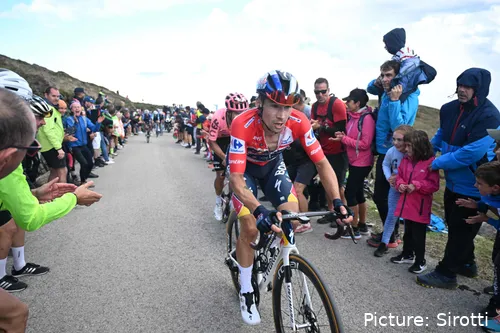
Primoz Roglic was once again supreme at the Vuelta a Espana in 2024
In addition to physical changes, cycling is also mentally
taxing. The ability to handle the pressures of competition, maintain focus over
long stages, and execute precise tactics often improves with experience, giving
older riders an edge in certain scenarios. However, the reality of multi-week
races like the Tour de France can expose any physical decline, as the recovery
demands are immense. And there’s also factors like family, as riders get older
they’re more likely to have more people to take care of, which may give them a
priority above pushing to the absolute limit on their bike.
Despite these challenges, modern training methods,
nutrition, and recovery technology have extended the competitive careers of
many cyclists. Riders like Primoz Roglic, who at 35 remains a top contender,
demonstrate that age doesn't have to be a barrier to the extent it used to.
Nonetheless, time is always a factor, and for Roglic, the question is whether
he can capitalize on his remaining years to claim the elusive Tour de France
victory.
Read also
Who are the oldest winners of the Tour de France?
Winning the Tour de France is an extraordinary feat at any
age, but for some riders, it has come later in their careers, defying the odds
and expectations of the sport. The oldest winner in Tour history is Firmin
Lambot, who triumphed in the 1922 edition at the age of 36 years and 4 months,
slightly older than Roglic will be on the start line of next year’s Tour.
Competing during an era when road conditions and equipment were far less
advanced than today, Lambot's victory remains one of the most incredible achievements
in the sport’s history.
In the modern era, age has become even more significant as
riders look for every extra percentage in their performance. The oldest winner
of the Tour in the 21st century is Cadel Evans, who claimed victory
in 2011 at 34 years old. Evans' triumph was the culmination of years of
near-misses and his yellow jersey was thoroughly deserved when he finally got
his hands on it. His success inspired many, proving that riders in their
mid-30s could still compete at the highest level.
Read also
While the Tour de France has seen relatively few older
winners, other Grand Tours have witnessed extraordinary achievements by veteran
riders. The most striking example is Chris Horner, who at 41 years old won the
2013 Vuelta a España, becoming the oldest rider ever to win a Grand Tour.
Horner's victory, which included outpacing rivals decades younger on the climbs,
showed that winning a grand tour in your 40s was still possible.
The average age of Tour winners historically comes in the
late 20s to early 30s, according to data compiled by Topend Sports. This trend reflects the balance between the
advantage of youth and endurance, and
experience built through years of professional racing. For Primoz Roglic, he
may be slightly older than the average, but it is not entirely out of the
question that he could still win the Tour.
Read also
Older champions in other individual sports
Cycling isn't the only sport where athletes have defied father
time to summit the pinnacle of their respective sports. In several individual
sports, older competitors have climbed to the top of their disciplines, showing
their younger competitors, they’ve still got it.
In boxing, George Foreman famously reclaimed the heavyweight
title at the age of 46 in 1994. Facing Michael Moorer, who was 19 years his
junior, Foreman delivered a stunning knockout to secure his place in the record
books. What made Foreman’s win even more incredible was that it took place 20
years after he’d lost the title!
Read also
In athletics, Linford Christie became the oldest Olympic
champion in the 100 metres sprint at the Barcelona Olympics in 1992 at 32
years, 3 months, and 30 days. Christie’s victory in such a physically explosive
event, traditionally dominated by much younger athletes, highlighted the fact
that is not impossible to overcome physical stereotypes at the highest level of
sport.
Tennis has also seen examples of older champions, with
Serena Williams continuing to compete at the highest level into her late 30s.
Perhaps the most inspiring story is that of Ken Rosewall, who at 37 years old
won the Australian Open in 1972.
Read also
These examples from other individual sports show that age
can just be a number, and can be mitigated by factors such as experience,
strategy, and progress in sports science. For Primoz Roglic, the success of
these athletes offers encouragement that a Tour victory remains within reach,
even as the years advance. Of course, his countryman Tadej Pogacar probably
represents a bigger problem than Roglic’s age right now, but you still can’t
right off the four-time Vuelta winner heading in to 2025.
claps 0visitors 0
Just in
Popular news
Latest comments
- No matter what people say - I'll watch it. And I bet all the complainers will do it too....averagecyclist18-02-2026
- Exactly what I'm thinking about it. Moreover Van Glis had a lot of time to rethink his situation but decided to stay where he was.averagecyclist18-02-2026
- Soler must be pissed at that
 leedorney18-02-2026
leedorney18-02-2026 - Completly agree, Jan was in front of van gils, following Pidcock wheel, it was Van gils who tried to force his way through Jan and the barriers. Are they blaming Jan because he belongs to the richest team that win a lot?
 maria2024202418-02-2026
maria2024202418-02-2026 - Clickbait title, not reality-based. Yawn.itsent18-02-2026
- lame, but probably correctantipodeanpedalfan18-02-2026
- Van Gils rode like wanted to get crashed or way too over confident that he was going to overtake Jan before getting pinched. It was obvious were Jan was going/had to go and MVG had the whole road to give an inch so he would have a chance to overtake on the rightjad2918-02-2026
- Double book this showing with the Melania documentary and you might get 100 people to see it...total !frieders318-02-2026
- Simple solution...stay off the barriers since you might get closed out ! Christen's sprint was legal as he was trying to get into the slipstream of Pidcock.frieders318-02-2026
- I believe Remco now understands that he will have issues reaching the top step as long as Tadej is in the Tour, whiles he's a year junior to Tadej he has had his upper body rebuilt twice now from crashes over the last few years. I think he has a chance to win the Tour in a few more seasons, you can only prepare yourself as best you can and try. He said he needs to race some more one week stage races, he should, he can probably win them all. I also believe Remco should aim for another Vuelta if he comes out of the Tour in good form and maybe he should think about the Giro again for next season. This is potentially Tadej's fifth Tour win coming up this year, no one is going to derail that unless he falls off the bike or gets really sick.awp17-02-2026
Loading
Write a comment
